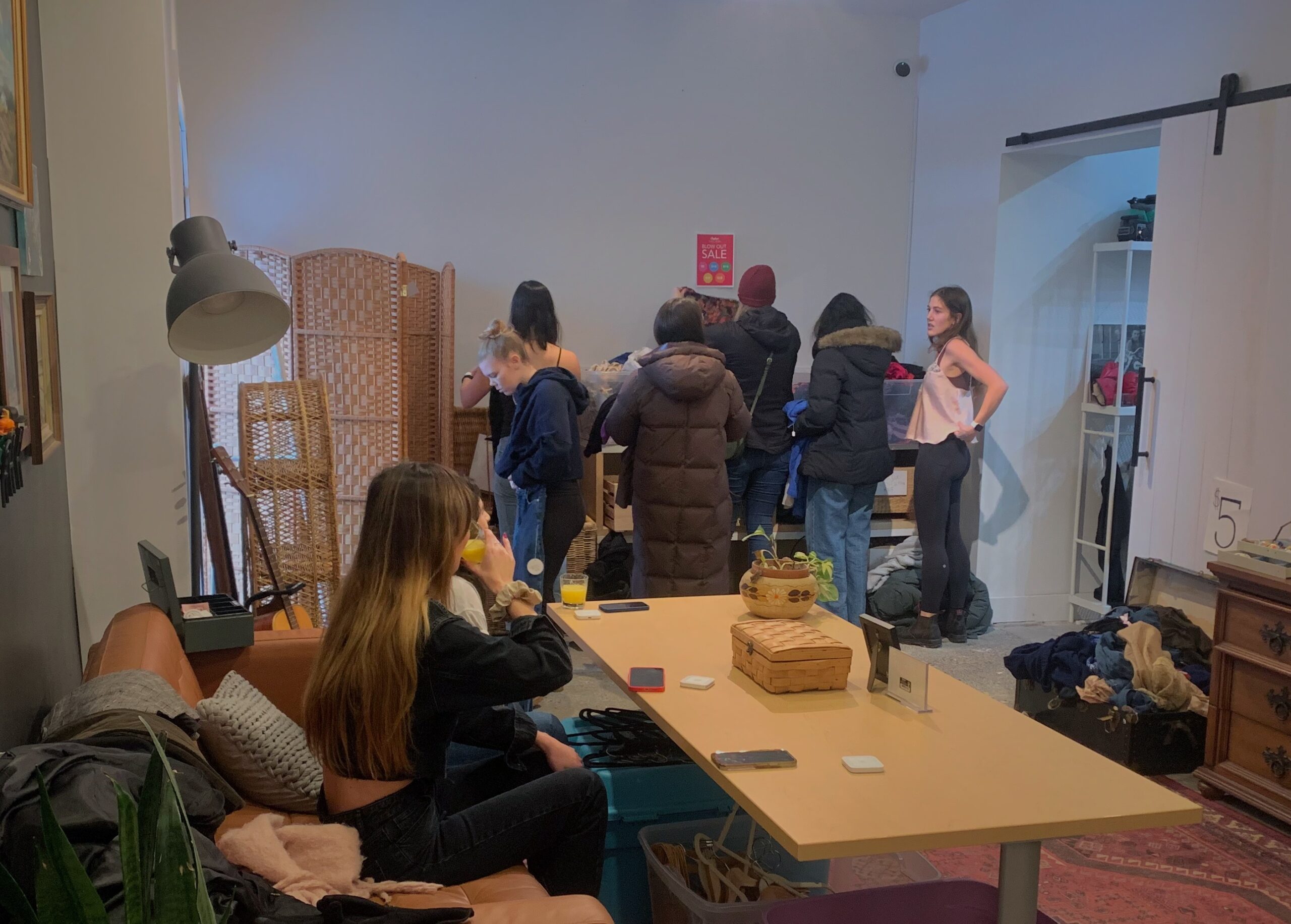Closing of Vaughan’s General Store attributed to pandemic, economy
Cost of living in Halifax was huge factor in store’s end, says owner

caption
Customers came out to Vaughan's General Store to take advantage of slashed prices as the store closed on Jan. 27.In January, Asher Boates had to say goodbye to a friend he’d known for over two years.
This friend was not a living person, but rather his small business, Vaughan’s General Store.
“It was a bit surreal,” Boates said.
The clothing store opened its doors for the last time on Jan. 27. Gleeful shoppers walked around and in a backroom full of vintage and second-hand clothing, the phrase “oh, what about this?” seemed especially popular.
At one point, a queue of almost 10 people waited to try on their treasures in curtained dressing areas.
For Boates, however, the day brought on more complex feelings.
“It was really sad, but also kind of beautiful to see the impact we’ve had.”
After founding, owning and operating Vaughan’s General Store on Agricola Street for more than two years, Boates announced that the store would close in a Jan. 11 Instagram post. However, he had made the decision in October.
According to Boates, the Covid-19 pandemic had a huge ripple effect on the business’s supply chain.
Boates said many of the ethical brands supplying Vaughan’s struggled to get materials they needed in the wake of the pandemic. For instance, there was a global shortage of organic cotton, which affected Boates, who refused to sell cotton products that weren’t sourced from ethical businesses.
“What we call ‘dirty cotton’ in the industry, a lot of it is essentially slave labour,” said Boates. “Of course, they’re not prioritizing their people’s health or wellness throughout the process. We avoided them, and our inputs and products continued to get more and more expensive.”
When Boates opened Vaughan’s in September 2021, his goal was to fill a gap in the clothing market. Seeing a lack of ethically conscious clothing stores in Halifax, he decided to open his own. However, he found it tough to balance the cost of his products with the city’s economic climate.
“The cost of living has just gone through the roof,” said Boates. “So, even our best customers were faced with the question of, ‘Okay, do I buy products from you? Or do I put food on my table?’ ”
“We were also trying to pay our staff a livable wage, which is really, really hard to do in Halifax,” said Boates. “But it’s who we are, it’s what we wanted to do. So, all those things kind of stacked up against us.”
In addition to ethically sourced clothing products, Vaughan’s also distributed second-hand clothing from small businesses around Halifax, including Esmé and Evee, a vintage clothing retailer. Founder Madeleine Esmé Villa has faced similar challenges.
“The hardships we’ve faced are the hardships of most independent retail businesses in the HRM right now,” said Esmé Villa.
“We’re backed up against big box stores like Amazon and Walmart. With everyone feeling financial pressure, it makes it hard to go out of your way and purchase something sustainable at a higher dollar.”
In terms of helping small ethical businesses, Esmé Villa urges Haligonians to vote with their dollars.
“When you spend money with local businesses, you’re saying you want them to stay in your community,” said Esmé Villa. “I can’t imagine a Halifax that doesn’t have some of these small businesses anymore, and it’s scary how many have closed even within just the last year.”
Since the store’s closure, Boates has been spending time with his family. In the future, he hopes to create some of his own products to sell online and promote via social media.
“I don’t want Vaughan’s to end, even if the retail side has ended,” said Boates. “There will definitely be more creative projects in the near-ish future.”
About the author
Kaitlyn MacNeill
Kaitlyn MacNeill is a fourth-year journalism student at the University of King's College living in Halifax, Nova Scotia.
